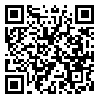Volume 2, Issue 2 And Supplement (Absteracts-Spring 2021)
J Vessel Circ 2021, 2(2 And Supplement): 8-8 |
Back to browse issues page
Download citation:
BibTeX | RIS | EndNote | Medlars | ProCite | Reference Manager | RefWorks
Send citation to:



BibTeX | RIS | EndNote | Medlars | ProCite | Reference Manager | RefWorks
Send citation to:
Hashemilar M, Charsouei S, Nikanfar M, Savadi Oskouei D, Shaafi S. Psychogenic Non-Epileptic Seizures: A brief review. J Vessel Circ 2021; 2 (2) :8-8
URL: http://jvessels.muq.ac.ir/article-1-164-en.html
URL: http://jvessels.muq.ac.ir/article-1-164-en.html
Mazyar Hashemilar * 
 1, Saeid Charsouei1
1, Saeid Charsouei1 
 , Masoud Nikanfar1
, Masoud Nikanfar1 
 , Darioush Savadi Oskouei1
, Darioush Savadi Oskouei1 
 , Sheida Shaafi1
, Sheida Shaafi1 


 1, Saeid Charsouei1
1, Saeid Charsouei1 
 , Masoud Nikanfar1
, Masoud Nikanfar1 
 , Darioush Savadi Oskouei1
, Darioush Savadi Oskouei1 
 , Sheida Shaafi1
, Sheida Shaafi1 

1- Department of Neurology, Tabriz University of Medical Sciences, Tabriz, Iran
Abstract: (962 Views)
Psychogenic nonepileptic seizures (PNES) are paroxysms of movement, sensation, or behaviors that are very similar to epileptic seizures but do not have a neurological origin; rather, they are psychosomatic manifestations of psychologic problems. Patients with PNES frequently are misdiagnosed and treated for epilepsy. As a diagnostic tool, video-electroencephalography monitoring is the choice for diagnosis. Between 5 to 10 percent of outpatient epilepsy patients and 20 to 40 percent of inpatient epilepsy patients have psychogenic nonepileptic seizures. These patients frequently have comorbid psychiatric illnesses, most commonly depression, posttraumatic stress disorder, other dissociative and somatoform disorders, and personality traits, especially borderline personality type. Many patients have a personal history of sexual or physical abuse. Between 75 and 85 percent of patients with psychogenic nonepileptic seizures are women. Psychogenic nonepileptic seizures usually begin in late teenage and young adulthood. A significant delay usually occurs between the clinical presentation of PNES and its definitive diagnosis. This time interval has been reported with a wide range of mean time from 0.6 to 11.18 years in different studies. This rather long delay poses adverse effects of a prolonged unnecessary (antiepileptic) drug treatment and social and psychological consequences of an erroneous diagnosis of epilepsy for these patients. Treatment includes stopping of all antiepileptic drugs in patients without associated epilepsy and referral psychiatrist for diagnosis of underlying psychologic stressor and appropriate treatment. The psychiatric management includes a combination of drug therapy and cognitive behavioral treatment. However, more studies are required to elucidate the best treatment choices.
Type of Study: Review |
Subject:
vascular neurological diseases
Received: 2021/10/20 | Accepted: 2021/10/2 | Published: 2021/10/2
Received: 2021/10/20 | Accepted: 2021/10/2 | Published: 2021/10/2
| Rights and permissions | |
 |
This work is licensed under a Creative Commons Attribution-NonCommercial 4.0 International License. |




